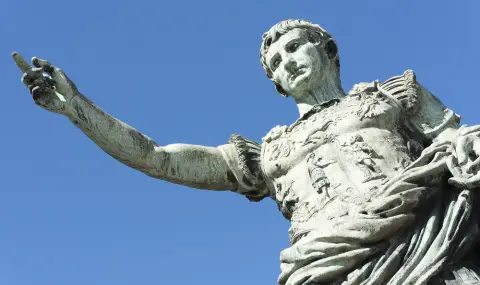In 45 BC, for the first time in history, the New Year was celebrated on January 1, when the Julian calendar came into effect.
This is recalled by history.com.
Soon after becoming Roman dictator, Julius Caesar decided that the traditional Roman calendar was in dire need of reform. Introduced around the 7th century BC, the Roman calendar attempted to follow the lunar cycle, but it often got out of phase with the seasons and had to be adjusted. Furthermore, the pontiff, the Roman authority charged with controlling the calendar, often abused his power by adding days to extend political terms or interfere with elections.
In developing his new calendar, Caesar sought the help of the Alexandrian astronomer Sosigenes, who advised him to abandon the lunar cycle entirely and follow the solar year, as the Egyptians did.
The year was calculated at 365 1/4 days, and Caesar added 67 days to 46 BC, thus making 45 BC start on January 1 rather than March. He also decreed that a day be added to February every four years, thus theoretically keeping his calendar from falling out of line. Shortly after Caesar was assassinated in 44 BC, In 1400 BC, Mark Antony changed the name of the month Quintilis to Julius (July) to honor him. Later, the month Sextilis was renamed Augustus (August) after his successor.
The celebration of the New Year in January fell out of practice during the Middle Ages, and even those who strictly adhered to the Julian calendar did not celebrate the New Year exactly on January 1. The reason for the latter was that Caesar and Sosigenes failed to calculate the correct value for the solar year as 365.242199 days, rather than 365.25 days. Thus, the error of 11 minutes per year added seven days by 1000 and 10 days by the mid-15th century.
The Church recognized this problem, and in the 1470s, Pope Gregory XIII commissioned the Jesuit astronomer Christopher Clavius to develop a new calendar. In 1582, the Gregorian calendar was introduced, dropping 10 days for that year and introducing the new rule that only one in every four centuries should be a leap year. Since then, people all over the world have gathered en masse on January 1st to celebrate the exact arrival of the New Year.
